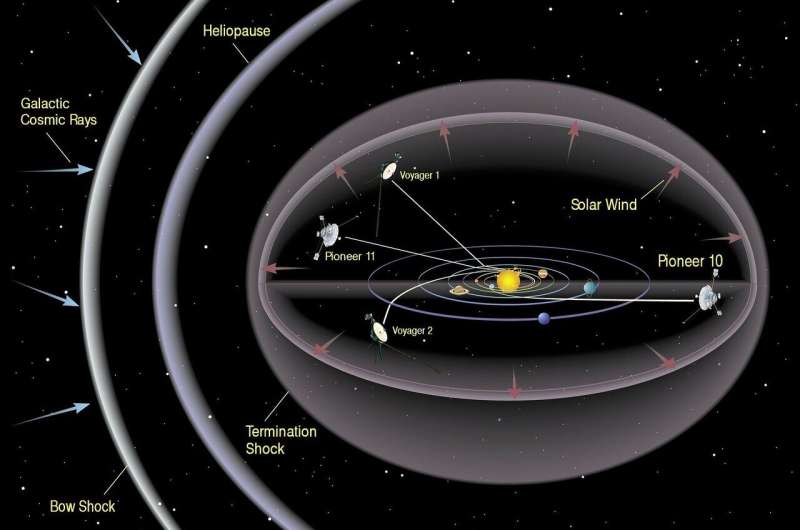NASA's Voyager 1, the most distant spacecraft from Earth, is doing science again after problem
Written by Copernical Team Saturday, 15 June 2024 13:40
NASA's Voyager 1, the most distant spacecraft from Earth, is sending science data again.
Voyager 1's four instruments are back in business after a computer problem in November, the Jet Propulsion Laboratory said this week. The team first received meaningful information again from Voyager 1 in April, and recently commanded it to start studying its environment again.
Launched in 1977, Voyager 1 is drifting through interstellar space, or the space between star systems. Before reaching this region, the spacecraft discovered a thin ring around Jupiter and several of Saturn's moons. Its instruments are designed to collect information about plasma waves, magnetic fields and particles.
Voyager 1 is over 15 billion miles (24.14 kilometers) from Earth. Its twin Voyager 2—also in interstellar space—is more than 12 billion miles (19.31 kilometers) miles away.
© 2024 The Associated Press. All rights reserved. This material may not be published, broadcast, rewritten or redistributed without permission.


